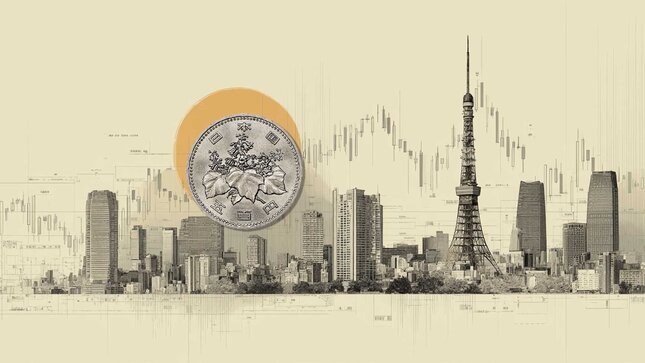Have you ever considered basing your trading strategy on the results of election polls? In a time where it seems you would probably be better off predicting election results by flipping a coin, gazing at the stars or by looking at the dregs in your tea cup, you’re probably wondering “why on earth would I?” The utterly woeful ability for the polls to even ball park the results of recently passed elections and referendums, means that basing your trading plan on them, seems like a plan headed for financial disaster.
With the polls advising that England was bound to “remain” in the Brexit vote, that Clinton was sure to be the next President of the United States and that Theresa May was undoubtedly going to succeed in shoring up her electoral support, the only confident conclusion that one can glean from all this is that the polls are nothing if not completely unreliable.
As to why the polls have been so completely off the mark has drawn a lot of speculation. Yet all factors point towards their random sample selections being not that random. Pollsters have acknowledged difficulties with obtaining accurate and random samples ever since the proliferation of mobile phones. Previously, the ubiquity of landline telephones made the process of getting a random and representative sample fairly straight forward as it was simply a matter of randomly selecting names from a phone book, call those potential voters and talk them through the interviews. In the process, a rich supply of context and human understanding was provided for which pollsters were more accurately able to analyze responses. This ‘old-fashioned’, if not ‘quaint’, method of a simple phone call also provided higher response rates and helped to moderate a non-response bias, where the polls themselves become skewed by the type of people who tend to answer.
So why is blame lumped on the proliferation of mobile? Firstly, because landline telephone samples are no longer adequate. Secondly, the demographic differences in their adoption has entailed that mobile holders of a certain stipe, already represent a segmented group. Thirdly, mobile phone numbers are not as consistently publically listed as they were for phone lines. Yet, online survey methods don’t serve pollsters that much better, a seemingly more resourceful method to supplant the telephone, they have become particularly susceptible to bias and are regarded to have even lower quality results.
But coming back to our initial question, would you ever base a trading strategy on the results of election polls? The answer could be both no and yes, it really all depends on when. The ‘no’ or perhaps ‘no-way-in-hell’ camp would accurately point to the volatility in the markets that occurs just prior to national elections. This volatility reflects that there is no confidence being held in the reliability of the polls, but more than anything else mirrors the public’s indecision of how events will pan out. While forex traders do love their volatility, it still makes for a risky period as it is near on impossible to trade strategically.
Alternatively, those in the ‘yes’, or the ‘i-am-not-as-crazy-as-i-look’ camp, will point to the immediate aftermath of an election as a prime opportunity to execute their trades. In the last throws of the election, there is a lot more clarity on where the market is headed. If the polls were indeed accurate, a currency will normally increase in value, as this creates a sense of stability, especially if the election results are perceived to be a strength to the future of the economy. If the polls were inaccurate, a currency will normally decrease in value, as markets will respond badly to surprise shocks and the sentiment of instability that the polls infused.
To test the theory, we measured it up against the spate of recent elections that include the US elections, the UK referendum and the subsequent snap general election, all of which experienced results that were in stark contrast to poll predictions. As election results were published the USD took a plunge against all other major currencies, dropping by as much as 8 percentage points against the Euro. If those other countries weren’t struggling with their own political turmoil there is reason to think the USD would have dropped even more.
Post Brexit the sterling took an absolute nosedive falling by 10 percentage points in the immediate aftermath. Though it’s arguable this happened in anticipation of the economic setback of England no longer being part of the EU block. The sterling did gradually start to pick up a little, especially when the general election was called in April, but the surprise results for the Conservative party appeared to be equally surprising for everyone as the pound plummeted yet again to a new low of 1.1278 GBP/EUR.
The rare occasion were the polls actually got things right was in the case of the French elections in May. Projections gave Macron almost two thirds of the vote, indicating that the path to the Élysée Palace was most certainly determined, even despite the fact that his party was barely a year old and that he was a relative unknown entity. But the success of the pro-EU campaigner came to enormous relief on the markets, which rose after the first round of elections and then again after the second round of elections, as the future of the EU appeared to be pulled out of its state of uncertainty.
Keep in mind that trading the market is never this simple and traders would be well served to pay attention to interest and inflation rate changes along with other market indicators. Furthermore, elections don’t happen in isolation but especially in these cases, they occur in wider political contexts where there are multiple concerns at stake. Perhaps not all too coincidentally, the polls consistently appear to side with the electoral party that is considered to be of stronger economic benefit to the national economy, most likely a characteristic of its non-random selection.
And as to whether that’s a failing of Democracy, is another article for another time.
All essays, research and information found above represent the analysis and opinion of Leverate only. As such it may prove wrong and be a subject to change without notice. Opinions and analysis were based on data available to the author of the respective essays at the time of writing. Although the information provided above is based on careful research and sources that are believed to be accurate, Leverate does not guarantee the accuracy or thoroughness of the data or information reported. The opinions published above are neither an offer nor a recommendation to purchase or sell any securities. Leverate is not a Registered Securities Advisor. By reading Leverate’s reports you fully agree that they will not be held responsible or liable for any decisions you make regarding any information provided in these reports. Investment trading and speculation in any financial markets may involve risk of loss.e risk of loss.
Editors’ Picks

EUR/USD: US Dollar to remain pressured until uncertainty fog dissipates Premium
The EUR/USD pair lost additional ground in the first week of February, settling at around 1.1820. The reversal lost momentum after the pair peaked at 1.2082 in January, its highest since mid-2021.

Gold: Volatility persists in commodity space Premium
After losing more than 8% to end the previous week, Gold (XAU/USD) remained under heavy selling pressure on Monday and dropped toward $4,400. Although XAU/USD staged a decisive rebound afterward, it failed to stabilize above $5,000.

GBP/USD: Pound Sterling tests key support ahead of a big week Premium
The Pound Sterling (GBP) changed course against the US Dollar (USD), with GBP/USD giving up nearly 200 pips in a dramatic correction.

Bitcoin: The worst may be behind us
Bitcoin (BTC) price recovers slightly, trading at $65,000 at the time of writing on Friday, after reaching a low of $60,000 during the early Asian trading session. The Crypto King remained under pressure so far this week, posting three consecutive weeks of losses exceeding 30%.

Three scenarios for Japanese Yen ahead of snap election Premium
The latest polls point to a dominant win for the ruling bloc at the upcoming Japanese snap election. The larger Sanae Takaichi’s mandate, the more investors fear faster implementation of tax cuts and spending plans.
RECOMMENDED LESSONS
Making money in forex is easy if you know how the bankers trade!
I’m often mystified in my educational forex articles why so many traders struggle to make consistent money out of forex trading. The answer has more to do with what they don’t know than what they do know. After working in investment banks for 20 years many of which were as a Chief trader its second knowledge how to extract cash out of the market.
5 Forex News Events You Need To Know
In the fast moving world of currency markets where huge moves can seemingly come from nowhere, it is extremely important for new traders to learn about the various economic indicators and forex news events and releases that shape the markets. Indeed, quickly getting a handle on which data to look out for, what it means, and how to trade it can see new traders quickly become far more profitable and sets up the road to long term success.
Top 10 Chart Patterns Every Trader Should Know
Chart patterns are one of the most effective trading tools for a trader. They are pure price-action, and form on the basis of underlying buying and selling pressure. Chart patterns have a proven track-record, and traders use them to identify continuation or reversal signals, to open positions and identify price targets.
7 Ways to Avoid Forex Scams
The forex industry is recently seeing more and more scams. Here are 7 ways to avoid losing your money in such scams: Forex scams are becoming frequent. Michael Greenberg reports on luxurious expenses, including a submarine bought from the money taken from forex traders. Here’s another report of a forex fraud. So, how can we avoid falling in such forex scams?
What Are the 10 Fatal Mistakes Traders Make
Trading is exciting. Trading is hard. Trading is extremely hard. Some say that it takes more than 10,000 hours to master. Others believe that trading is the way to quick riches. They might be both wrong. What is important to know that no matter how experienced you are, mistakes will be part of the trading process.
The challenge: Timing the market and trader psychology
Successful trading often comes down to timing – entering and exiting trades at the right moments. Yet timing the market is notoriously difficult, largely because human psychology can derail even the best plans. Two powerful emotions in particular – fear and greed – tend to drive trading decisions off course.


